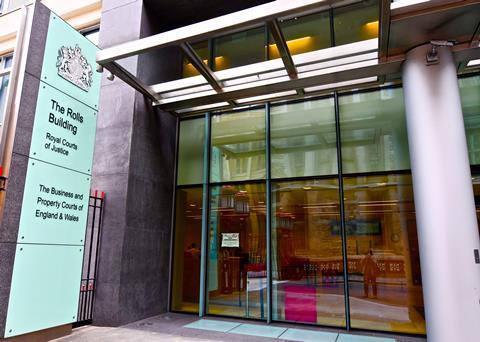An international firm could face a £1m negligence action over tax advice after a judge found the claims were not time-barred.
Stephane Etroy sought to sue Speechly Bircham LLP, now Charles Russell Speechlys LLP, for damages following what he alleges was negligent advice. The second claimant in proceedings – RBC Trust Company, a Jersey-based provider of trust services – established a trust for Etroy and said it incurred tax liabilities of more than £1m as a result of advice given by Speechly.
Speechly argued the claims were statute-barred while Etroy and RBC said the earliest date they acquired the knowledge which led to the negligence claims was in September 2018 following an investigation by their accountants PwC.

Etroy and RBC seek compensation in relation to an entry charge of £1,057,069.82 and a principal charge of £66,460.09, plus interest and penalties for both charges; legal costs of around £19,000 for the firm’s advice as well as the costs incurred in implementing the advice; and around £480,000 in costs including costs incurred by the claimants' accountants, legal costs and RBC’s costs.
In Etroy & Anor v Speechly Bircham LLP, the ruling centred on s14A of the Limitation Act which sets a later starting date for the limitation period, ordinarily of six years, in circumstances where the claimant lacks the knowledge required to bring a negligence action.
Clare Armstrong, sitting as a deputy High Court judge, said it was ‘telling' that as soon as Etroy had a 'firm indication' from PwC of incurred charges and that the status of assets should have been appreciated when advice was given in 2009, he knew 'something had gone wrong' and he'd been 'poorly advised'.
She said: ‘PwC’s telephone conference with Mr Etroy on 28 September 2018 first gave [him] actual knowledge that liability for the entry charge was a real possibility whereas previously PwC had been tentative and maintaining that further information was required.’
The judgment found RBC would have first known it had suffered damage attributable to the firm's advice at the same time.
It said that while RBC ‘had notice earlier in September 2018 of the sums in question and that a chargeable lifetime transfer took place on creating the new discretionary trust, PwC did not spell out its advice until the telephone conference on 28 September 2018.’
It added: ‘It was at this stage that a firm link between the entry charge and the defendant’s advice on the transfer of assets was drawn. RBC would not have had the expertise to have drawn these inferences at any earlier stage from the basic facts.’
Passing judgment, Armstrong said: ‘The claimants had obtained expert tax advice at an early stage to ascertain the trust’s tax liabilities. Based on the findings…the claimants could not reasonably have been expected to have acquired the knowledge required for bringing an action for damages in respect of the damage alleged prior to 28 September 2018.’


























